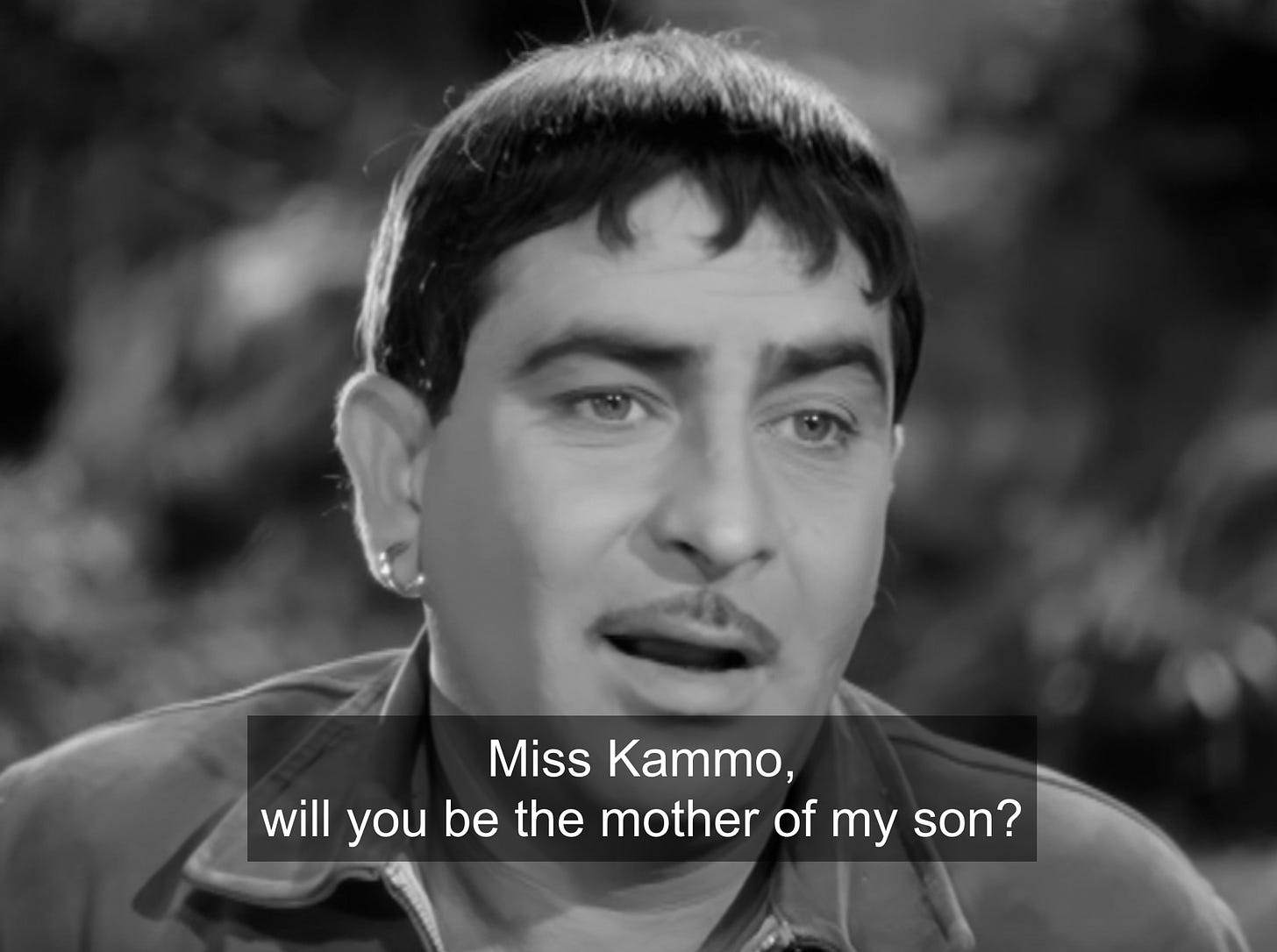Names you rarely hear in Hindi films anymore
Once a mainstay in Bombay Cinema, names like Sarju and Kammo are now relics of the past.
Certain clichés are unique to Hindi cinema, typically reflecting the era they belonged to. Among these were some names that became synonymous with particular onscreen characters. For a significant part of last century’s Hindi cinema, a wealthy ‘Seth’ was almost always called Dharamdas or some variation like Dharamchand, Dharamraj, or Dharmanand. The ever-loyal housekeeper was invariably Ramu Kaka, while the stock Muslim character would be Rahim Chacha, the sweet, elderly Christian lady was Mrs. D’Sa, and so on.

Then there were certain screen names like Gopal, Sarju, Kammo, and Chhabili. Once a mainstay in Bombay cinema of the 1950s and ’60s, they are now relics of the past. One notable aspect of many of these older names was that there wasn’t a strict divide regarding whom they belonged to. A rich heiress and a village belle could both be called Kammo. Since the majority of stories revolved around Hindu families and characters, names like Gopal, Shankar, Meena, and Shanta were far more common than Salma, Preeto, or Mary.
As Bollywood’s focus gradually shifted towards urban narratives and affluent characters, these simple, everyday names were replaced by seemingly more modern ones that aligned with contemporary urban culture. So, from Lajwanti, Bhagwanti, Mohan, and Shankar, we moved to Raj, Rahul, Priya, and Tina—eventually arriving at the syllable-loving world of Pia, Tia, Ayan, and Vihaan. However, the strong presence of films set in small towns, tier-two cities, and occasionally villages continues to reintroduce more traditional names into the narrative.
On that note, here are some favourite names from old Hindi films:
Sarju: This will always be famous as Jubilee Kumar’s fake name in Arzoo (1965)—‘Mr Sarju from Okhla’—which creates all the confusion in this love triangle.
Other notable mentions: Rajendra Kumar in Geet (1970), Vinod Khanna in Patthar Aur Payal (1974), Kuldip Kaur in Maa Baap (1960).
Kammo: A rich, spoiled brat, a gaon ki gori, a working girl, or the heroine’s saheli—all have borne this name.
Notable films: Nargis in Chori Chori (1956), Padmini in Jis Desh Men Ganga Behti Hai (1960), Rameshwari in Dulhan Wahi Jo Piya Man Bhaaye (1977).
Dulari: A frequently used name in ’50s Hindi movies, its strongest connection would be to the popular yesteryear actress Dulari.
Notable films: Madhubala in and as Dulari (1949), Manorama in Panchayat (1958), Aruna Irani in Sikka (1989).
Phoolwa: The go-to name for a feisty village belle.
Notable films: Mala Sinha in Himalay Ki God Mein (1965), Rekha in Gora Aur Kala (1972).
(Not to be missed: Bharat Kumar making an early use of emoji here)
Dharamdas: You aren’t raees in Hindi cinema until you are called Seth Dharamdas.
Notable films: Prem Nath in Dharmatma (1975), Om Prakash in Apna Desh (1972), Bir Sakuja in CID (1956).
Chhabili: Another spunky, sharp-witted gaon ki gori cliché. Often competes with its rhyming counterpart, Albeli, for the honours. Most likely to say: Daiyya re daiyya!
Notable films: Bela Bose in Jab Yaad Kisi Ki Aati Hai (1967), Rekha in Haseenon Ka Devta (1971), Padma Khanna in Sultana Daku (1972).
Bhagwanti: Meaning someone blessed with good fortune, this name was frequently given to the lady of the house in several Hindi films—and the lady in question was almost always quarrelsome.
Notable films: Lalita Pawar in Khandan (1965), Sulochana Chatterjee in Parivar (1968), Leela Mishra in Do Raaste (1969), and Bindu in Hum Aapke Hain Koun (1994).
Banwari: The crafty accountant, nosy neighbour, small-time rogue, man Friday, or the hero’s sidekick—one name fits all.
Notable films: CS Dubey in Ghar (1978), Asrani in Teri Meherbaniyan (1985), Shakti Kapoor in Jaan (1997), and Om Puri in Chachi 420 (1997).
Do you have any such favourites? Tell tell.
Enjoyed the read? Don’t miss out on Flashback Bollywood’s other posts.
All images used on Flashback Bollywood are the property of their respective owners and are used for representational purposes only.













Rich bad guys were usually Singhania, Raichand, Rai you know very powerful sounding names.
Peter, Michael, Albert- The good hearted Christian, usually a drunkard.